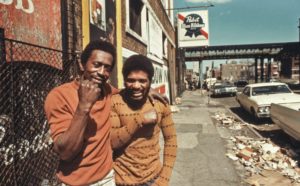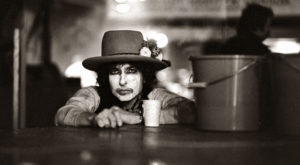Loss, a part of life, is certainly a part of literature, but it is seldom its motive force. Chekhov’s The Cherry Orchard is not a drama of loss, but of wistfulness. Madame Ranevsky seems to mourn the imminent loss of the orchard. She could preserve it by marrying off Varya; but she does not do so. Why? We may call her indecisive, but this reveals the original proposition as false. As she does not act to save the orchard, we must conclude that was never her objective.
What was her objective? We actually don’t know. She seems to be enjoying toying with the notion of loss. And we may enjoy her antics, as they are part of a series of serio-comic sketches. The Cherry Orchard does not have a plot.
Death of a Salesman is a series of sketches on a theme equating regret with loss. What is Willie Loman’s problem? He is not a very good salesman. Arthur Miller wrote of De Sica’s Bicycle Thieves that it was as if someone had photographed the human soul. But, for all its worth, one cannot say the same of Death of a Salesman. We come away having seen a play about The Other (with the exception of the scenes with Biff). This Other’s problem is that he’s a bad salesman, and we may, if we like, feel sorry for his state. But which of us actually has sympathy for another’s problems? (Part of the attraction of the Problem, Illness, or Diversity play is its invitation to convince ourselves that we do.)
The southern writer can present his regional emotionality as a party turn (Thomas Wolfe), or it may be the genius outpourings of an actual tortured soul, like William Faulkner or Tennessee Williams. Mark Twain wrote that Ivanhoe was the book which ruined the South. This most famous of knightly tales grew out of the romances of the Jongleurs, Lancelot, Roland, and their mélange by Walter Scott into his creation of The Lost Cause. His was the eradication of Scottish Culture in the defeat of the Stuarts. The Southerners (Scots-Irish in the main) grafted that tragedy onto their own.
When Tennessee Williams was born in 1911 in Mississippi, many veterans of the civil war were still alive. His parents’ generation all suffered under Reconstruction. They, additionally, were descended from Huguenots, French Protestants exiled in the 17th century; and, to conclude the entertainment, he was — for that time necessarily — a closeted gay man. And a poet.
In A Streetcar Named Desire, which debuted on Broadway 75 years ago this week, what does Blanche long for? An imaginary past. What is her particular problem? She longs for an imaginary past. And she’s a whore.
Do the events in the play amount to, or are they structured around, a plot? Not particularly. But the poet is pregnant of his cause, and we are the beneficiaries, moved, if I might, not by the tragedy of Blanche, but by that of Tennessee.
Freud wrote that music is polymorphous perversity, which I understand to mean it moves us through the progression of notions which have no referent in logic: although the feeling they engender is exactly like that created by an enlightening syllogism.
The highest paid production staff in vaudeville were the Routiners, who would structure the evening’s seven acts into a whole emotionally similar to that of an actual drama: The opening production number, the duet, the rope-twirler, the slapstick clown, and so on, culminating in the headliner and the serio-comic act to send us on our way. That’s what Chekhov does in The Cherry Orchard.
Streetcar is less abstract. It is a melodrama. Here the characters are assigned qualities by which we may recognise them (white hat vs black hat; red nose indicating the drunk; ample form and high-flown speech, the Matron, flightiness, the Ingénue, and so on), given the theme of sexuality, and then allowed to play.
I never understood the plays of Eugene O’Neill. It was explained that his father was a drunk and his mother a dope fiend, and I began to understand his concerns; but I didn’t care, as the plays bored me.
He paid his obeisance to that form no doubt taught by Professor Baker in his Harvard Drama course. But what did Professor Baker ever write? Nothing that I know of. But he had read a lot, and, no doubt, imparted his theories to O’Neill, who discharged the debt by the compliment of becoming academic.
Chekhov’s progenitors were the comics of the music hall, and the short stories he read and famously wrote. With the growth of wide-circulation magazines, the late-Victorian era created a grand market for the short-story writer, Chekhov and Tolstoy among them. Chekhov’s plays are, each, more similar to a collection of short stories with the same characters, than they are to conventional drama. He was creating — consciously or not — something which he had enjoyed, and practising it in a different form.
Tennessee’s forebears were The Romantic Poets, and he may be said to be the last of their line. There exist some few works about not the ineffableness, but about the agony of loss. Tragedy cleanses, as it affronts us with the human condition; which, here (as opposed to mere drama) we recognise unavoidably as our own. But no one feels sorry for either Othello or Desdemona. They are mechanical parts of a tragic progression. One would, as soon, be reduced to tears by Beethoven, and then feel sorry for the violin.
But we feel the loss of Thackeray’s Henry Esmond, and that of Frederic Henry at the death of Catherine in A Farewell to Arms. Does one feel sorry for Blanche? We may go as far as “too bad”, but that’s as far as we’ll go. Does one feel sorry for the author, a creature of Loss? I don’t think so, as he got to write a magnificent play, and to reap all the benefits on offer thereby.
Streetcar, like The Sorrows of Young Werther, concerns a hero who is (one or both) just of too fine sensibilities to live in the world, or has a screw loose. But romanticism seems to be compounded of Love, Longing and Death, written by the non-artist we’re left with a love story, about a Jock who Cried.
Tennessee, by his own admission (to me) was addicted to rough trade — as if it required a ghost from the grave to tell us that. The addiction is an unquenchable longing for that imagined-as-male. Whether this is the male one feels he can never become, or him he can never have, is moot — one is not going to find this love in the arms of a whore, and, so, one is doomed to perpetual repetition, failure and loss.
Tennessee-as-Blanche imagines males with their clumsy, rough fingers, as raping, beer-swilling, poker-playing bowlers. She is, at once, the longing vessel and the professional — the rough-trade.
Gay drama in straight drag was taken up by Truman Capote 14 years later as the romantic comedy Breakfast at Tiffany’s; and two years earlier than Streetcar, in Noel Coward’s drama Brief Encounter. The first ends in a marriage possible as the couple is presented as heterosexual; the second, in a heart-rending abandonment of the affair as the couple (in underlying truth) are not.
At the end of Streetcar, Blanche goes nuts, which is neither a victory over her situation, or fate, nor an acceptance of her failure — it is a convenience allowing the play to end. The end of the play is the continuation of the Poker Game, or “men go on, amusing themselves with a male game not only in spite, but in ignorance, of the depth of women’s anguish”.
I beg pardon for the psycho-sexual dismemberment of a great play. Streetcar is dated, but at some point it will cease being dated.
Disclaimer
Some of the posts we share are controversial and we do not necessarily agree with them in the whole extend. Sometimes we agree with the content or part of it but we do not agree with the narration or language. Nevertheless we find them somehow interesting, valuable and/or informative or we share them, because we strongly believe in freedom of speech, free press and journalism. We strongly encourage you to have a critical approach to all the content, do your own research and analysis to build your own opinion.
We would be glad to have your feedback.
Source: UnHerd Read the original article here: https://unherd.com/




